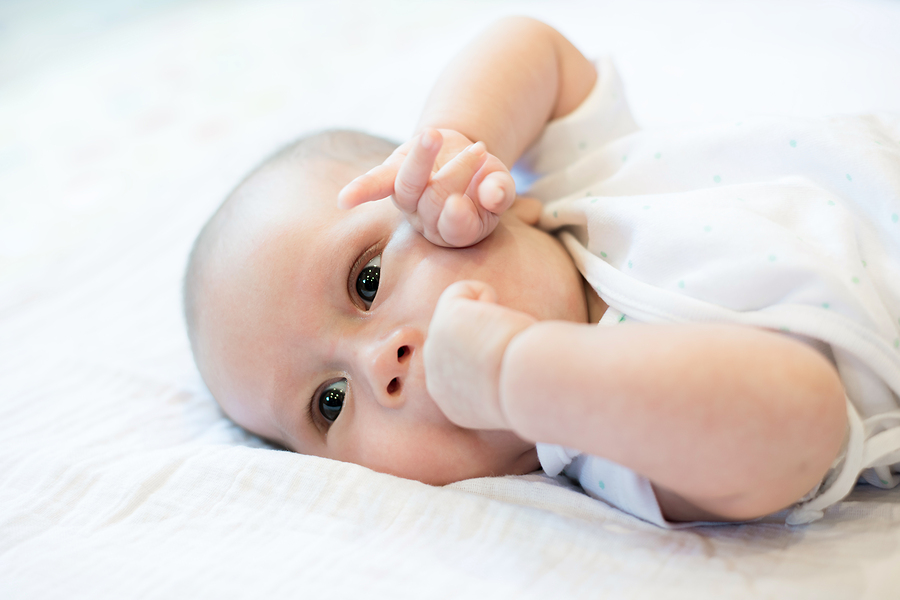
Brain Swelling In Babies
In recent times, there’s been a turnover of convictions based on the prognosis of shaken baby syndrome because of the growing lack of support in medical community between the connection of shaking a baby and an absolute result of injury or death. While this investigation into the causation of brain swelling, bleeding on the surface of the brain and bleeding behind the eyes, known as the triad behind shaken baby syndrome, is being called into question, this by no means encourages or insinuates the ramifications of shaking an infant. This isn’t supporting a notion that babies or young children are not abused. It is supporting the possibility that other factors other than shaking and having nothing to do with criminal behavior, may sometimes explain the triad [1]. These questions evoke strong emotions from both sides of the case because of the delicacy behind infant mortality. Consequently, it’s these emotions that have professionals concerned with the classification of shaken baby syndrome diagnosed too liberally.
Two Cases to Note:
- The “Nanny Murder Trial”, a criminal case in 1997 introduced the concept of shaken baby syndrome to the public of the United States, was a case that made national headlines. The murder trial of Louise Woodward, an 18 year old British au pair, was accused of having shaken an 8 month old boy, Matthew Eappen, so aggressively that he died. At the time, however, there were also reports that the baby had injuries that may have predated Ms. Woodward’s joining the Eappen family in Newton, Massachusetts. Due to the nature of the trial, the only concern of the media and the prosecutors was on the triad of symptoms. Continually, with support from medical professionals, the prosecutors believed that they had proved that the baby was undeniably shaken so violently that his head hit some hard surface that lead to his death. Although Woodward maintained her innocence, she was found guilty of second-degree murder and was sentenced to 15 years to life in prison. Soon after, the judge of the case knocked the murder charge down to involuntary manslaughter and a sentence of time already served in jail, which in her case was 279 days. Even the medical professional who spoke on behalf of the prosecution said that he rethought his testimony and also stated that if he were able to testify again, he would not confirm the medical findings to just abuse [2].
- Another account of an overturned case is that of Aisling Brady McCarthy who was accused of murdering a Cambridge infant in her case in 2013. Prosecutors had alleged that McCarthy had assaulted Rehma on January 14, 2013, causing massive brain injuries. However, McCarthy’s defense team submitted reports from a range of specialists challenging the cause of death. This is due to the fact that they asserted that the baby had been sick much of her short life and was suffering from a bleeding disorder and gastrointestinal problems. Adding to those two ailments, the baby had sustained bone fractures weeks before her death when McCarthy wasn’t nannying. In the beginning of last month, the revised ruling held evidence that had a medical history showing that 1 year old Rehma Sabir’s health made her prone to easy bleeding with relatively minor trauma. The medical examiner’s office also said that it could no longer stand by its ruling that the child’s death was a homicide. Prosecutors dropped the case after McCarthy already served 2 and ½ years in prison and is now awaiting travel back to her home country of Ireland. One of McCarthy’s defense attorneys, Melinda Thompson, said that they also cannot rule out a lawsuit against the authorities for wrongful prosecution [3].
The prognosis of shaken baby syndrome which has become the highly debated topic in cases around the country, not just Massachusetts, is facing serious scrutiny around the nation because of its growing legal challenges regarding its dependability and underlying science [2]. One of the most conclusive studies that support the unreliability of shaken baby syndrome was conducted by the Washington Post and journalists from the Medill Justice Project at Northwestern University. In March of this year, they published their findings concluding that in about 1,800 abuse cases across the country that had reached a resolution since 2001; 1,600 cases resulted in a conviction. In about 200 cases, the charges were dropped or dismissed because defendants were acquitted or convictions were overturned [4]. This substantial number shows the divisions in medical practice and law in regards to shaken baby syndrome.
Dolman Law Group
Nevertheless, brain injuries that result from shaken baby syndrome are still a legitimate finding when the evidence doesn’t support any outlining factors such as accidents and a range of other conditions, including but not limited to metabolic disorders, blood-clotting problems and infectious diseases. 1,600 of those 1,800 hundred cases were still tried and convicted of the crime. Therefore, it is essential to report or claim damages as a result of the brain injury. The lawyers at Dolman Law Group have significant experience in children’s traumatic brain injury. Just because there is opposition to the defense, doesn’t mean that a child injured due to the negligence of another isn’t given a fair option. A children’s brain injury can mean dependency for life or even death. Although it will never replace the love of a child, you may be compensated for your losses. Please call (727) 451-6900 today for a free consultation.
Dolman Law Group
800 North Belcher Road
Clearwater, Florida 33765
727-451-6900
https://www.dolmanlaw.com/legal-services/brain-injury-attorneys/
References:
[1] http://commonhealth.wbur.org/2010/09/shaken-baby/
[2] http://www.nytimes.com/2015/09/14/us/shaken-baby-syndrome-a-diagnosis-that-divides-the-medical-world.html
[3] https://www.bostonglobe.com/metro/2015/08/31/state-medical-examiner-office-changes-finding-finds-homicide-infant-death/yQSNRpNQwWw5Ha29Bhqs4H/story.html
[4] http://investigativereportingworkshop.org/investigations/shaken-science/story/disputed-diagnosis-imprisons-parents/





